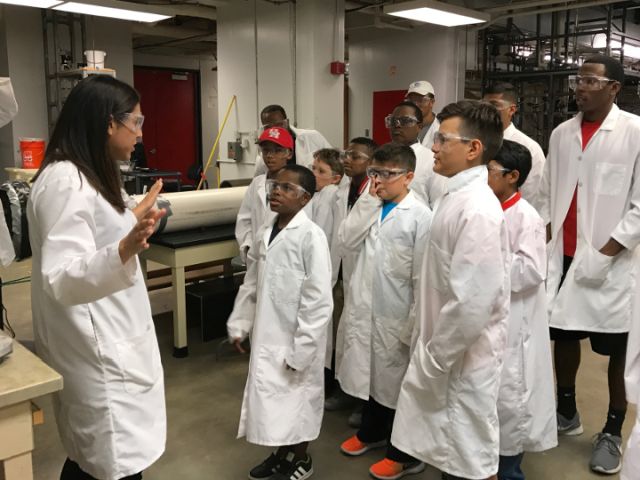
A group of researchers from the University of Houston will use a three-year, $1 million grant from the National Science Foundation (NSF) to expand a project intended to spur interest in STEM.
Program co-founder Jerrod Henderson, who serves as principal investigator for the grant, is an instructional assistant professor in the Cullen College of Engineering and director of Program for Mastery of Engineering Studies.
Henderson and Ricky Greer, a graduate student in University of Houston’s College of Education, launched the project, known as St. Elmo Brady Academy.
St. Elmo Brady was the first African-American man to earn a Ph.D. in chemistry – at Hartsfield Elementary School and the University of Houston Charter School.
In addition to Henderson and Greer, faculty involved with the project include Mariam Manuel, co-principal investigator on the grant and a science master teacher with teachHOUSTON, and Virginia Snodgrass Rangel, assistant professor in the College of Education.
teachHOUSTON is a collaborative project of the University of Houston College of Natural Sciences and Mathematics, the College of Education, and local school districts.
Snodgrass Rangel will evaluate the student-mentor relationship in the program to determine if having a mentor, especially one who is African-American or Latino, can change younger students’ ideas about a future in science, engineering or another technical field. She also will measure the impact on the mentors themselves.
Undergraduate engineering students, along with those from a program to train students to teach math and science, meet with young students twice a week. Fathers or other male family members join the group for an engineering project on Saturday mornings. Engineering students serve as mentors for boys whose relatives can’t attend.
Participating students’ standardized test scores in science and math will be tracked and compared with those of students at schools that did not participate in the program.
Data to determine how well the program works won’t be known for several years, but Snodgrass Rangel is hopeful.
The U.S. Army Corps of Engineers has been tasked with…
Brown and Caldwell, a leading environmental engineering and construction firm,…
Humboldt State University, one of four campuses within the California…